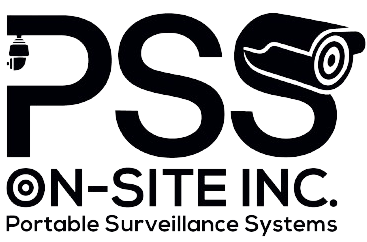In an age where security is paramount, surveillance CCTV camera systems have become indispensable for businesses and organizations of all sizes. This guide aims to provide comprehensive insights into selecting the perfect CCTV camera system to meet your security needs effectively.
Understanding Surveillance CCTV Camera Systems
Before delving into the selection process, it’s crucial to grasp the fundamentals of surveillance CCTV camera systems. These systems consist of various components, including cameras, recording devices, and monitoring equipment, all working together to capture, record, and monitor activities within a designated area.
Types of Surveillance CCTV Cameras
Surveillance CCTV cameras come in different types, each with its unique features and capabilities. Understanding the distinctions between these types is essential for making an informed decision:
- Analog CCTV cameras
- IP (Internet Protocol) CCTV cameras
- HD (High Definition) CCTV cameras
- Wireless CCTV cameras
Factors to Consider When Choosing a Surveillance CCTV Camera System
Several factors should be taken into account when selecting a surveillance CCTV camera system to ensure it meets your specific requirements:
- Location and environment
- Resolution and image quality
- Field of view and coverage
- Night vision capabilities
- Connectivity and compatibility
- Storage options
- Budget and cost considerations
Assessing Your Security Needs
Before making any decisions, it’s essential to assess your security needs thoroughly:
- Identifying areas of concern
- Determining security objectives
- Conducting a site survey to understand the layout and potential risks
Understanding Camera Specifications
To choose the right CCTV camera, it’s crucial to understand key specifications:
- Resolution and image sensor for clarity and detail
- Lens type and focal length for capturing specific areas
- Infrared (IR) distance for night vision capabilities
- Weatherproof and vandal-proof ratings for durability
Selecting the Right Type of CCTV Camera
Different situations call for different types of CCTV cameras:
- Analog vs. IP cameras for connectivity and scalability
- Fixed vs. PTZ (Pan-Tilt-Zoom) cameras for flexibility
- Dome vs. bullet cameras for aesthetics and functionality
- Indoor vs. outdoor cameras for weather resistance
Compatibility with Existing Infrastructure
Ensure seamless integration with your existing infrastructure:
- Integration with existing security systems for efficiency
- Network compatibility for smooth operation
- Scalability for future expansion to accommodate growth
Understanding Recording and Storage Options
Choose the right recording and storage options to meet your needs:
- DVR (Digital Video Recorder) vs. NVR (Network Video Recorder) for recording and management
- Storage capacity and retention requirements for storing footage
- Cloud-based vs. on-premises storage for accessibility and security
Considering Remote Monitoring and Accessibility
Remote monitoring and accessibility are vital for real-time surveillance:
- Mobile viewing and remote access for flexibility
- Alert notifications and real-time monitoring for immediate action
- Remote troubleshooting and maintenance for efficiency
Evaluating Vendor Support and Warranty
Choose a reputable vendor that offers excellent support and warranty:
- Reputation and track record of the vendor for reliability
- Technical support and assistance for ongoing maintenance
- Warranty coverage and terms for peace of mind
Installation and Setup Considerations
Ensure proper installation and setup for optimal performance:
- DIY vs. professional installation based on expertise
- Placement and positioning of cameras for maximum coverage
- Cable management and power supply for reliability
Ensuring Regulatory Compliance and Privacy
Comply with regulations and protect privacy:
- Compliance with local laws and regulations for legal adherence
- Data protection and privacy considerations for ethical surveillance
- Secure transmission and encryption protocols for data security
Testing and Maintenance
Regular testing and maintenance are essential for optimal performance:
- Regular testing of equipment and functionality for reliability
- Firmware updates and software patches for security
- Routine maintenance and servicing for longevity
Training and Education
Proper training and education are crucial for effective operation:
- Training for system administrators and operators for proficiency
- User education and awareness programs for compliance
- Emergency response procedures for preparedness
Conclusion
In conclusion, choosing the right surveillance CCTV camera system requires careful consideration of various factors, including location, camera specifications, compatibility, and support. By taking the time to assess your security needs, understand camera specifications, and evaluate different options, you can select a CCTV camera system that effectively meets your requirements while providing peace of mind and protection for your assets, personnel, and premises. With the right surveillance CCTV camera system in place, you can enhance security, deter potential threats, and maintain a safe environment for your business operations.
For More Great Updates, Keep Visiting Pssonsite.
